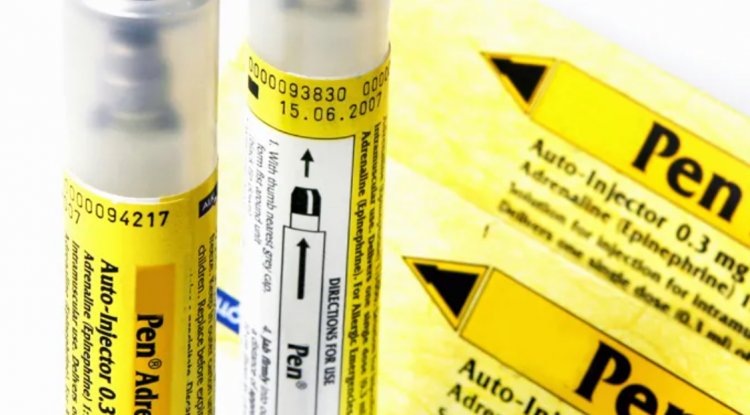From Dependence to Freedom: The Journey Through Withdrawal Syndrome
Withdrawal syndrome is a complex condition characterized by a variety of physical and psychological symptoms that occur when a person abruptly reduces or stops the intake of a substance on which they have become dependent. These substances can range from alcohol and nicotine to illicit drugs and prescription medications. The severity and duration of withdrawal symptoms can differ significantly based on the substance involved, the duration of use, and individual physiological and psychological factors.

Causes of Withdrawal Syndrome
Withdrawal syndrome arises due to the body's adaptation to the presence of a substance. When a person regularly uses a substance, their body adjusts its normal functions to accommodate its effects. This process, known as homeostasis, involves changes in neurotransmitter levels and receptor sensitivity in the brain. When the substance is suddenly removed or reduced, the body experiences a period of imbalance as it attempts to restore normal function, leading to withdrawal symptoms.
Mechanisms of Withdrawal
The mechanisms underlying withdrawal syndrome vary depending on the substance. For instance:
-
Alcohol: Chronic alcohol consumption enhances the inhibitory effects of the neurotransmitter GABA and inhibits the excitatory effects of glutamate. Sudden cessation leads to an overactive central nervous system, causing symptoms like tremors, anxiety, and seizures.
-
Opioids: Long-term opioid use alters the brain’s pain and reward pathways. Withdrawal occurs as the brain’s endogenous opioid system struggles to function normally without the external opioid supply, leading to symptoms like muscle pain, gastrointestinal distress, and severe cravings.
-
Benzodiazepines: These drugs increase GABA activity, leading to sedation and anxiety reduction. Withdrawal symptoms occur as the brain becomes hyperactive in the absence of these drugs, potentially resulting in severe anxiety, seizures, and insomnia.
Symptoms of Withdrawal Syndrome
The symptoms of withdrawal syndrome can be divided into physical and psychological categories. The onset and duration of these symptoms depend on the substance, the amount used, and the duration of use.
Physical Symptoms:
-
Alcohol: Tremors, sweating, nausea, vomiting, headaches, and in severe cases, seizures and delirium tremens (DTs).
-
Opioids: Muscle pain, sweating, diarrhea, vomiting, rapid heart rate, and high blood pressure.
-
Benzodiazepines: Muscle cramps, tremors, seizures, gastrointestinal disturbances, and insomnia.
-
Nicotine: Headaches, increased appetite, insomnia, and gastrointestinal discomfort.
-
Stimulants: Fatigue, increased appetite, and physical aches.
Psychological Symptoms:
-
Alcohol: Anxiety, depression, irritability, mood swings, and hallucinations.
-
Opioids: Anxiety, depression, irritability, and intense cravings.
-
Benzodiazepines: Severe anxiety, depression, paranoia, and hallucinations.
-
Nicotine: Irritability, anxiety, difficulty concentrating, and strong cravings.
-
Stimulants: Depression, anxiety, irritability, and cognitive difficulties.
Risk Factors
Several factors can influence the severity of withdrawal syndrome:
-
Duration of Use: Longer periods of substance use often lead to more severe withdrawal symptoms.
-
Dosage: Higher doses typically result in more intense withdrawal symptoms.
-
Polysubstance Use: Using multiple substances simultaneously can complicate withdrawal and increase the severity of symptoms.
-
Individual Health: Pre-existing mental or physical health conditions can exacerbate withdrawal symptoms.
-
Genetics: Genetic predispositions can affect the severity and duration of withdrawal symptoms.
Management and Treatment
Managing withdrawal syndrome requires a multifaceted approach, combining medical intervention, psychological support, and lifestyle changes. The goals of treatment are to alleviate symptoms, prevent complications, and support long-term recovery.
Medical Supervision:
-
Detoxification: Medical detox programs provide a safe environment for individuals to undergo withdrawal, with medications and monitoring to manage symptoms and prevent complications.
-
Medications: Specific medications can be prescribed to manage withdrawal symptoms and reduce cravings. For example:
- Alcohol: Benzodiazepines (e.g., diazepam, lorazepam) to reduce anxiety and prevent seizures.
- Opioids: Methadone or buprenorphine to reduce withdrawal symptoms and cravings.
- Nicotine: Nicotine replacement therapy (patches, gum) and medications like varenicline or bupropion.
- Benzodiazepines: Gradual tapering off under medical supervision to avoid severe withdrawal symptoms.
Psychological Support:
-
Therapy: Cognitive-behavioral therapy (CBT) can help individuals understand their addiction, develop coping strategies, and address underlying psychological issues.
-
Counseling: Individual or group counseling provides emotional support and helps individuals navigate the challenges of withdrawal and recovery.
-
Support Groups: Peer support groups such as Alcoholics Anonymous (AA), Narcotics Anonymous (NA), and SMART Recovery offer community support and shared experiences.
Lifestyle Changes:
-
Healthy Diet: Proper nutrition supports physical recovery and helps manage symptoms like fatigue and gastrointestinal distress.
-
Exercise: Regular physical activity can reduce stress, improve mood, and enhance overall well-being.
-
Sleep Hygiene: Establishing a regular sleep routine and creating a restful environment can help manage insomnia and fatigue.
In conclusion, withdrawal syndrome is a significant hurdle in the journey to overcoming substance dependence. Understanding its mechanisms, symptoms, and effective management strategies is crucial for those affected by it. With comprehensive medical and psychological support, individuals can successfully navigate withdrawal and move towards a healthier, substance-free life. Continued research and improved treatment methods will further enhance our ability to support individuals through this challenging process.
Disclaimer
The information provided in this article is for educational purposes only and should not be considered medical advice. If you have any health concerns or are experiencing symptoms, it is important to consult with a healthcare professional, such as a doctor or clinic, for proper diagnosis and treatment. Always seek the advice of your doctor or other qualified health provider with any questions you may have regarding a medical condition. Do not disregard professional medical advice or delay in seeking it because of something you have read in this article.
Hashtags: #WithdrawalSyndrome #SubstanceWithdrawal #AddictionRecovery #MedicalSupport #PsychologicalSupport
What's Your Reaction?





















